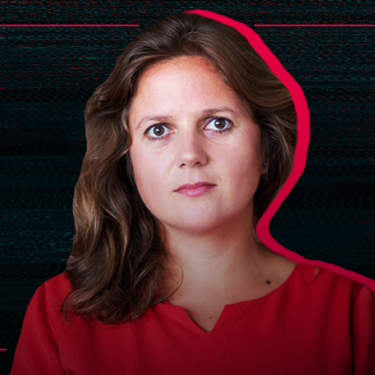As the investigation into a Slovak journalist Monika Tódová’s "deepfake" is reopened, RSF is calling for this type of attack to be criminalised

Reporters Without Borders (RSF) hails a Slovak prosecutor’s decision to reopen the investigation into the deepfake audio of Monika Tódová, a journalist that was circulated just before parliamentary elections in September, and calls for urgent legislation by Slovakia and all other democratic countries to address the dangers posed by the use of AI-generated deepfakes to attack journalists and the right to reliable information.
As a result of the prosecutor’s decision, Monika Tódová, one of the first media victims of a deepfake designed to influence the outcome of an election in Europe, testified to investigators on 6 March, in what was an important and welcome development in efforts to combat the threat to access to information posed by the use of artificial intelligence to produce convincing simulations of journalists.
On 28 September, two days before the parliamentary elections, a fake AI-generated audio clip that appeared to reveal Tódová and the leader of the Slovak Progressive Party preparing electoral fraud was circulated on social media, and clearly fed into the pro-Russian disinformation that is rampant in Slovakia. In a video produced by RSF, Tódová has talked in detail about this deepfake and the hateful attacks against her that ensued.
The police initially refused to investigate on the grounds, they said, that the public would not have been misled by this kind of deepfake audio, although it went viral on social media platforms. A Slovak prosecutor reversed the decision in early February, asking the police to reopen the investigation, and to treat the matter as a case of defamation in the absence of legislation defining deepfakes as an offence.
In RSF’s view, there is an urgent need to fill this legal void and establish a specific offence for this form of attack when it is used against journalists and against the public's right to reliable information. This offence should take account of the different aspects of the threat and should penalise both the creators and the disseminators of deepfakes.
“The Monika Tódová affair is an alarm signal. We cannot remain passive in the face of the malicious use of technology to attack the media and manipulate public opinion. It is vital to have legislation that addresses these challenges. We call for the creation of a specific deepfake offence that takes account of the threats that deepfakes pose to journalists and the right to information. A single deepfake can cause multiple harms: identity theft, defamation, disinformation and disrupting an election. No existing criminal charge is capable of taking account of all of its complexity.”
Vincent Berthier
Head of RSF’s Tech Desk
Disinformation and propaganda, in which deepfakes occupy a prominent place, take advantage of globalised networks and do not stop at national borders. The creation of this offence in national legislation must open the way to international cooperation on investigations into this kind of dangerous content in order to block it in multiple countries at the same time and bring authors and disseminators to justice.
